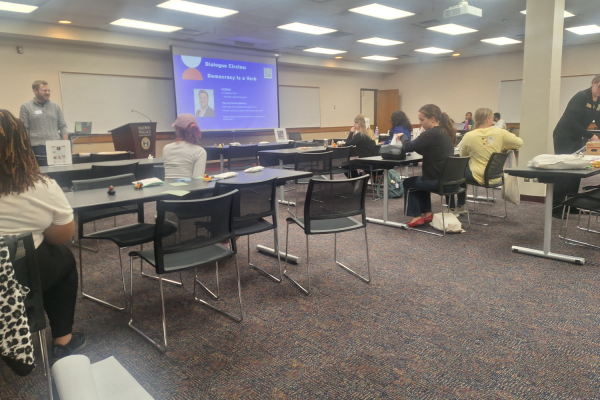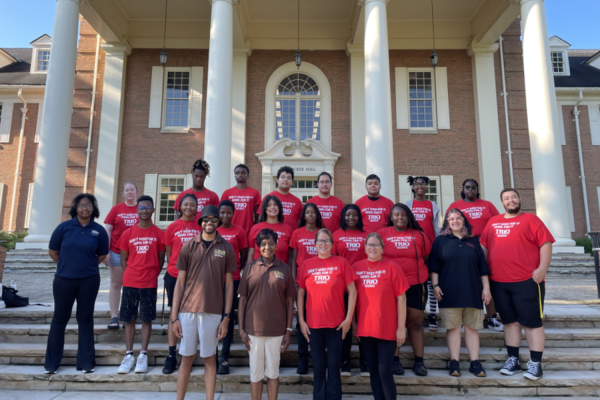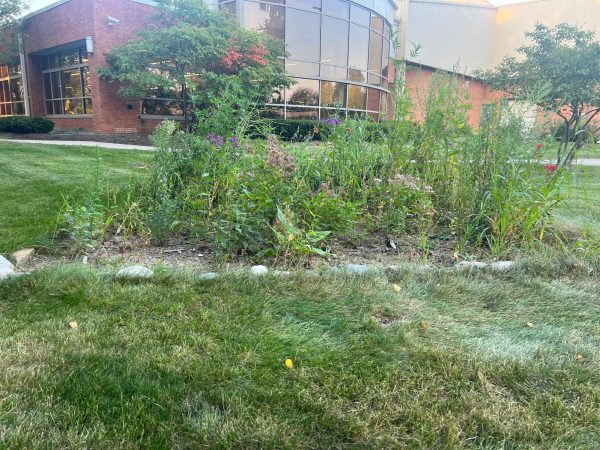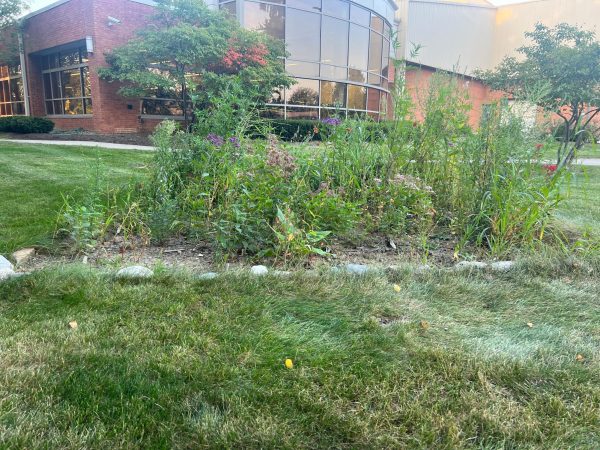Willow Project approval causes consternation among students over environmental, equity concerns
Students express their thoughts on the controversial Willow Project that was passed by the Biden Administration in March.
The Willow Project — an oil drilling plan in Alaska spearheaded by ConocoPhillips — received its approval to move forward by the Biden administration on March 13. This venture is controversial, sparking a flurry of online petitions and activism, particularly among young people.
Olivia Powell, a sustainability major, said that the approval was “shocking” to hear because Biden made a campaign promise of ending all new oil drilling on federal lands and has touted his goal to cut carbon emissions in half by 2030.
The Willow Project is controversial because, like many issues involving the delicate balance between the need for energy independence and other serious concerns, it is complicated.
“Initially, my reaction to the news of President Biden green lighting the Willow Project was very disappointing,” said Emma Stamper, a member of the Baldwin Wallace sustainability committee, “but with reflection, I have grown to understand that this topic is extremely complex.”
This oil project is going to be massive, and CNN reported that 600 million oil barrels can be extracted from the Alaskan land.
This much oil can aid the United States in becoming less reliant upon oil exports from other countries.
Another argument frequently made in support of the Willow Project is that it will create jobs. CNN reported that three Alaskan lawmakers discussed the project with President Biden, expressing a desire to move forward with the project.
However, some students believe that the economic gain is not enough of a reason to approve the project. Stamper said that while this venture will relieve America’s oil supply chain woes, “It’s important to consider the environmental impact it will have.”
Stamper said that the project will produce massive amounts of greenhouse gas emissions.
“It will take everything we have to mitigate these emissions,” Stamper said, “such as carbon capture and negative emission technology.”
The environmental impacts this project will induce are not the only issues students have with this venture.
Powell said that the Willow project has many social implications as it includes drilling on federal lands at five sites, which could threaten wildlife habitats and food availability in towns like Nuiqsut with large indigenous populations.
“Indigenous communities are going to be those directly affected by this,” Powell said.
Additionally, those who live near the project site could experience changes in health as a result.
Another issue mentioned by Powell relates to the recent report that the Intergovernmental Panel on Climate Change sent out in March.
The latest report from the IPCC, titled “AR6 Synthesis Report: Climate Change 2023” concludes that it is probable that the global temperature will reach above the 1.5 degrees Celsius mark.
Powell said that Earth cannot sustain a temperature above the 1.5 degrees Celsius mark “if we want to maintain a habitable Earth.”
Stamper said that it is important to vocalize concerns to representatives.
“Imagine how much movement we can make if every college student made their voice heard,” Stamper said. “It may even help speed up the process of our energy transition.”
The Exponent is looking for financial contributions to support our staff and our newsroom in producing high-quality, well-reported and accurate journalism. Thank you for taking the time to consider supporting our student journalists.




































